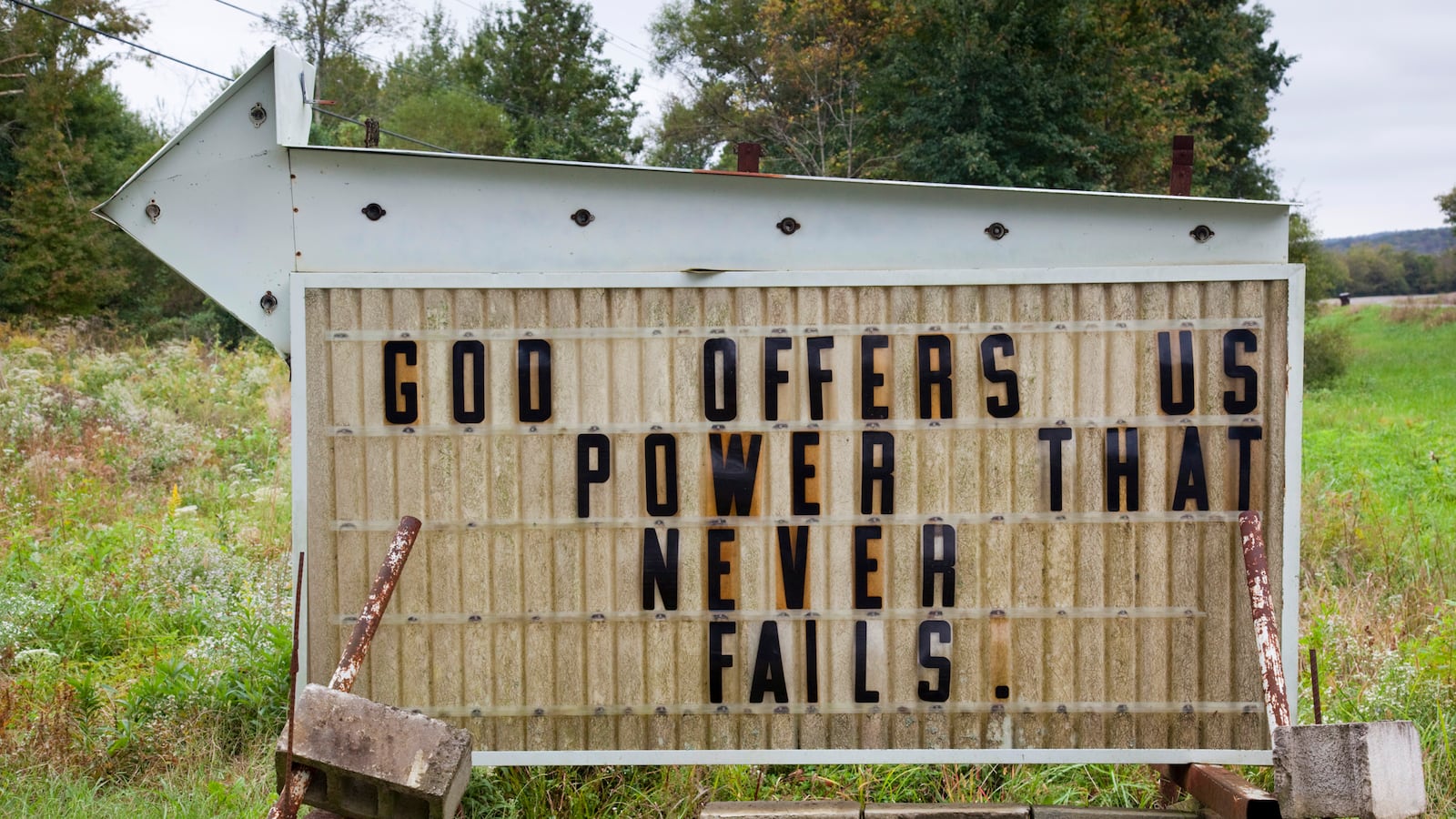Last week the Supreme Court stretched the boundaries of religious expression in the public sphere when it ruled—in a 5-4 decision split largely along ideological lines—that municipalities are constitutionally permitted to commence their official meetings with overtly Christian benedictions.

Writing for the majority in the case of Greece v. Galloway, Justice Anthony Kennedy called legislative prayer a benign and enduring part of the American tradition. So long as it does not “denigrate, proselytize, or betray an impermissible government purpose,” he argued, public prayer “lends gravity to public business, reminds lawmakers to transcend petty differences in pursuit of a higher purpose, and expresses a common aspiration to a just and peaceful society.”
It’s a lovely sentiment, if only it reflected the America in which most of us live.
Rather than serving as a unifying force, the public dialogue around faith has become increasingly contentious over the past 40 years. If religious expression was once the glue that bound men together, today it is just as likely to be the cudgel that breaks them apart.
Social conservatives present an easy target for blame. Since 1974, when Bob Jones University evoked religious freedom to defend its racially discriminatory admissions practices in a case that went all the way to the Supreme Court, the radical right has turned with increasing frequency to faith-based arguments to promote its policies of exclusion and intolerance. Their efforts to politicize theology can be crass and unsophisticated, and they regularly trespass beyond the parameters of the Establishment Clause.
But there is equal if not greater culpability on the progressive left, which has marched itself right out of the conversation on religion and faith under the flag of secularization.
By insisting on a rigid “wall of separation” between religion and public life, liberal America surrendered its place at the table and has been forced instead into a defensive posture as it fields charge after charge of “waging war” on the faithful.
That’s sheer hyperbole of course, particularly when you consider the religious make up of America. Ours is a nation of believers, and not even a terribly diverse one. While church attendance is down, the vast majority of Americans (78 percent) still identify as Christian. Add Jews and Muslims to the mix, and a monotheistic belief in a sentient higher power is practically universal in the U.S.
More than half of these believers accept the validity of evolution, are tolerant if not openly supportive of marriage equality, and back the contraceptive mandate in the Affordable Care Act. Not coincidentally, at least three quarters of them are also perfectly okay with prayer in public meetings.
If moderate voices are not part of the larger discourse on religious morality in America, it’s not because conservatives have pushed them out (although they're more than happy to see them gone.) They retreated willingly. And their silence is problematic for a number of reasons, not least of all because it has ceded the framing of religious discourse in America to a small group of radicals who, as Richard John Neuhaus noted in his influential 1984 book, The Naked Public Square, want “to enter the public arena making public claims on the basis of private truths.”
These are the people who’ve managed to turn baking a cake into a faith-based initiative; and they are filling a void left by more reasonable believers, who, despite their larger numbers, have adopted a “don’t ask, don’t tell” policy on the issue of religious ethics.
The result is that instead of engaging in nuanced discussions on the ethical lessons to be drawn from religious tradition and their relevancy today, we’re treated to zero-sum debates on the literal meaning of texts that are thousands of years old and require informed interpretive effort to relate to a modern context, if they can be related at all.
Meanwhile, secularists—and those hoping to stay out of their way—have created their own culture of intolerance by equating any religious expression whatsoever in the public sphere with religion’s most illiberal elements, and treating it as ipso facto incompatible with secular values or the Constitution.
We witness this every year in December when public schools awkwardly attempt to navigate the holidays without mentioning the reasons they exist. Last year, a school in Wisconsin disbanded its Master Singers choir group and canceled its holiday concert after the district issued an edict banning music with religious themes. The year before, administrators at a middle school in California canceled a production of Dickens’s A Christmas Carol—a play that has very little to do with the Christian holiday—because they thought it might offend Jewish students celebrating Hanukkah. The year before that, the Fort Worth Independent School District in Texas banned students from exchanging holiday gifts or cards; and a 16-year-old New Jersey boy was given the thankless task by his school of compiling a playlist for a holiday breakfast without any songs alluding to Christmas or Hanukkah. Amazingly, he was able to find nine songs that met that criteria.
This has not only sharpened the resolve of religious conservatives, but it has also obscured the important place of religion in the liberal tradition. From the birth of the Reformation to the dawn of Civil Rights, the best and worst of our common cultural and political heritage have been grounded either directly or tangentially in a narrative of religious faith. If you don't believe that, try engaging in even a basic scholarly analysis of Western art, philosophy, history or languages without a working knowledge of the Bible and see how far you get.
Yet our fear of indoctrination has consigned discussions of religion and its societal impact to the supper table, the church pew and Fox News – three places where it is least likely to be subjected to open and inquisitive scrutiny.
Walter Feinberg and Richard Layton explore this contradiction in their recently released book For The Civic Good, which makes a progressive case for teaching religion in pubic schools. “[W]hile many parents engage their children in their own religious tradition,” they write, “few have the knowledge or the interest to place that tradition in a wider context of traditions and interpretations, a context that we see as one of the critical dividing points between teaching religion as a devotional act and teaching it as a humanistic subject.”
If there is a lesson to be drawn from Greece v. Galloway, it’s that religion is alive and well in America and it’s not going anywhere anytime soon. America is home to no fewer than a dozen religious faiths—and infinitely more subgroupings of each—and yet, with the exception of a few loud and abrasive voices, most of us would just as soon pretend they didn’t exist.
The moral philosopher Michael Sandel observed, “Fundamentalists rush in where liberals fear to tread.” It’s time the moderate majority stopped clearing them a path.






